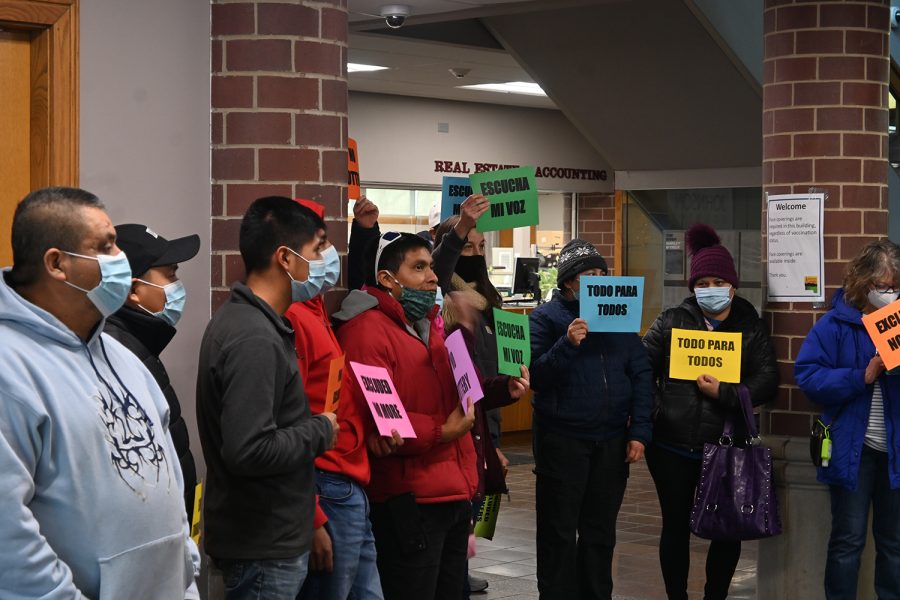Visual impairment is not a black or light issue.
“You don’t have to be black blind to be blind,” said Mark Neumeier, the president of Magnification Resources — a company based in Lincoln, Neb. “People suffer from low-vision conditions. When people hear legally blind, they think you either don’t see anything at all or you have normal vision.”
To dispel these misconceptions, along with educating the visually impaired community in Iowa City, the Senior Center held a Low Vision Resource Fair, in which vendors catering to the low-vision community could showcase their products.
Experts say that with the growing number of technology advancements, those who are visually impaired should be able to lead uninterrupted lives.
There are 1.3 million people in the United States who are identified as being legally blind. Roughly 69,000 people in Iowa are visually impaired.
Many vendors involved magnification to help with reading. Others came to educate visitors on programs that could help the visually impaired, such as the Iowa Library for the Blind.
One program, Newsline, provides a way for the visually impaired to listen to newspapers, magazines, and TV listings. Iowa Newsline coordinator Peggy Chong believes a big issue in the blind community is that members are not aware of all the technology available to help.
“I think it’s important [to have information fairs] because we need to be able to reach people,” she said. “A lot of the times, people don’t find out all the things you have, they don’t know about the variety of different vendors. A farmer wouldn’t go to just one store.”
Rick Dressler, the public information specialist for the Iowa Department for the Blind, helped put on the event.
“I think people are always surprised at the change of technology,” he said. “A lot of people think blind people don’t do what other people do. With the right training, they can find ways to adapt. They’re capable of doing everything they did in the past, just doing it differently.”
Chong, who has been legally blind her whole life, said she has dealt with many misconceptions associated with being legally blind, including others thinking she is not able to be independent.
“[People will think] that you’re not a person,” she said. “I’ll be at a restaurant, and they’ll ask, ‘Oh, what would she like’ and I’m sitting right there. My husband is also blind, and people will be surprised to hear that we take fixer-uppers and fix them up to sell them. We’ve raised a child; we travel.”
Ralph Aufdenkamp, the Iowa representative for Vision Helpers, said a positive attitude plays a large role in dealing with visual impairment.
“My wife is blind, so she has firsthand experience,” he said. “[The word ‘blind’] is a hard term to accept; people don’t want to be called that [because of misconceptions]. The hardest part is to accept it. Once my wife realized maybe [certain services such as the Department for the Blind] can help, she has been a changed person. She’s not afraid.”






